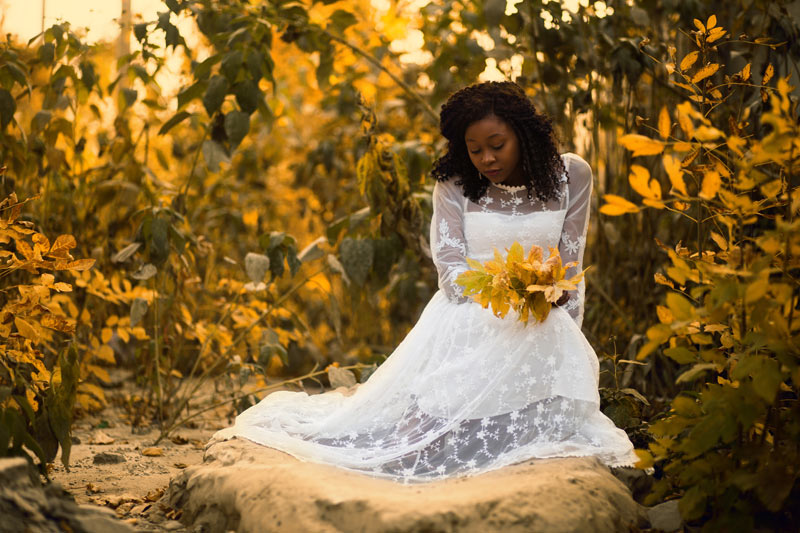Weddings are beautiful celebrations of love, in which two families are joined together. For many couples, these rites are steeped in both the bride and groom’s heritage and culture. While every wedding ceremony is unique, some traditional elements can be integrated to pay homage to the couple’s African wedding tradition roots.
The Libation Ceremony
The libation ceremony is deeply rooted in African American culture. It involves pouring alcohol or holy water in each cardinal direction while honoring those who have recently passed away and respected elders in attendance. Attendees recite prayers, toasts, and names as a way to allow wisdom and guidance to pass from the recently departed to the newly-married couple.
Tying the Wedding Knot
Getting married is often referred to as ‘tying the knot’ in a metaphorical sense. In some Afrocentric weddings, the phrase is much more literal. The couple will have their wrists bound together during the ceremony with a piece of cloth, strings of shells, or decorated rope. The material used for binding can also be representative. For instance, a Kente cloth represents Black pride, while red would be for blood, political passion, and strength; green is for growth, harvest, and renewal; white for purity; and purple represents Mother Earth, healing, and protection. The couple recites vows while being bound to confirm their commitment to one another.
Knocking the Door
Many African weddings begin when the groom ‘knocks on the door’ of the bride’s family home. This tradition is a way of asking the bride’s family for her their permission to marry her. If the knock is accepted, the groom will present her family with gifts, and the parties will begin discussing the terms of the engagement. If the terms are agreeable, the bride is called in and asked three times by her father if she agrees to the proposal. If she says ‘yes’ to each request, the engagement is official.
Kola Nuts
Kola nuts contain caffeine and are often used for medicinal purposes in many African areas. At weddings, they serve as a symbol of unity. The couple may exchange the nuts or share the nuts to represent their ability to heal problems they may face or promote fertility.
Tasting the Four Elements
Tasting the Four Elements is a tradition where couples taste the four flavors representing different stages of marriage. The four elements are cayenne for spiciness, lemon for sourness, vinegar for bitterness, and honey for sweetness. These elements are often placed in decorative dishes, and the guests watch all of the couple’s facial expressions while they taste the flavors.
Money Dance
The money dance – also called the money spray or dollar dance – occurs during the reception. The couple dance to celebrate good fortune while their guests toss money at them. This money is to be used by the couple to start their life together. Designated guests help collect this money, and at the end of the night, it is given to the couple.
Crossing Sticks
The tradition of crossing sticks dates back to slavery. During the wedding ceremony, the couple will cross sticks while exchanging their vows. This action is meant to represent unity, power, and the strength of the couple. Frequently, the couple use sticks from a tree at a family home or from somewhere meaningful.
Jumping the Broom
The origin of the tradition of ‘jumping the broom’ is unknown, although it can be traced back to West Africa, Wales, and the United States during the era of slavery. This practice involves the couple literally jumping over a decorated broom to complete the wedding ceremony. The broom is often kept as a keepsake of the day itself. It is meant to represent a way to sweep away any past wrongdoings or any evil spirits that may be present so that the couple can be joined without any shadow of misfortune.
These traditions are a few of the ones you may see in an Afrocentric wedding, although many other traditions could be incorporated that honor the couple’s unique culture and heritage. In many wedding ceremonies, the couple will also select fashion and décor that has a symbolic meaning. Adinkra symbols or Egyptian Ankhs can be featured throughout the wedding to represent understanding and agreement or to honor history. Seashells or other decorations are often used to represent good luck, prosperity, and abundance. The reality is that couples who would like to honor their African ancestry during a wedding have many different options for paying homage. They can select the elements they want to create a ceremony as unique as they would like.

